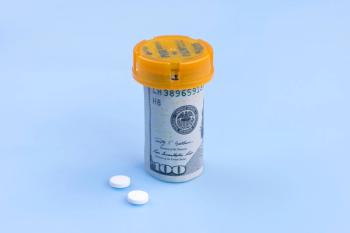
How Pharmacy Owners Can Incorporate Functional Medicine into Their Store
A virtual session from the 2021 Pharmacy Profit Summit touched on the role of functional medicine in the pharmacy.
In a
recent session from the 2021 Pharmacy Profit Summit
,
Lisa
Faast
, PharmD, CEO of
DiversifyRx
,
and
Dr.
Christine Manukyan
, PharmD, MS,
discussed the role of functional medicine in the pharmacy and ways for pharmacy owners to boost revenue through
incorporating
functional medicine consultations
.
Manukyan describes herself as a “recent corporate dropout”
and a health and wellness coach. After a career in both hospital and retail
pharmacy
, she
grew into an entrepreneurial role focused on functional pharmacy.
Manukyan told
Faast
that for pharmacists to begin to incorporate
functional medicine into their pharmacy, it’s important to “put the
P
harmD aside and focus on this as a business owner,” she said during the virtual session. A key aspect of functional medicine is being able to consult patients and help them get results without spending time on additional certifications and trainings
, according to Manukyan.
For example, pharmacy owners can offer pharmaceutical- and medical-grade supplements that patients can’t find anywhere else, “so people will come to you specifically to have access to [these] high-quality…supplements,” she said.
Manukyan
also
suggested providing a limited number of these supplements in-store and then letting customers know that they can buy more on your website.
Discussing the value of these supplements with patients is key, as less-expensive OTC vitamins can be lower quality or may even
contain
the
incorrect
form of the vitamin
for the
patient. “There’s so many versions of vitamins, that the ‘cheap’ brands might have that vitamin in there, but that isn’t actually the form of the vitamin that you need,”
Faast
said.
Another opportunity for pharmacists is
lab testing, including food sensitivity tests, which can
be used to
determine
whether
an individual’s diet is
causing adverse effects like
inflammation and migraine headaches.
“
A lot of my clients who have migraine headaches – it’s not that they have migraines, it’s that they’re sensitive to a certain food that they eat every single day,” Manukyan explained.
These labs also give pharmacists access to the data, so it’s not necessary to be an expert to interpret them.
In conjunction with these lab tests, pharmacy owners should consider billing their customers for consults on the results, Manukyan said
. She quoted a
1-hour consult as potentially being $250
to
$500 or more.
Although
the notion of charging for consult time may be foreign to pharmacists, Manukyan
asserted that “it’s time for us to wake up. It’s time for us to be the voice and really create these opportunities,” she said.
Pharmacists looking to learn more about functional medicine may get overwhelmed by the amount of information
out there. Manukyan recommended that pharmacy owners nail down what they aim to offer at their store, and then narrow it down from there. She also pointed to podcasts as great and accessible resources for becoming more acquainted with the functional medicine space. Manukyan herself enrolled into the School of Applied Function Medicine
,
“because at some point, they might ask us to have that extra training to be a clinician in the functional medicine space,” she said.
For pharmacy owners interested in seeing what functional medicine can do for their revenue streams, Manukyan highlighted the importance of investing the time. “Don’t underestimate the power of earning money while you’re learning,” she said. “Just start somewhere.”
Reference
- Manukyan C. Faast L. Dr. Christine Manukyan. Presented at: The 2021 Pharmacy Profit Summit; May 10-15, 2021; virtual. Accessed May 12, 2021.
https://www.pharmacyprofitsummit.com/pharmacy-profit-summit-day3-live48236200 .
Newsletter
Pharmacy practice is always changing. Stay ahead of the curve with the Drug Topics newsletter and get the latest drug information, industry trends, and patient care tips.























